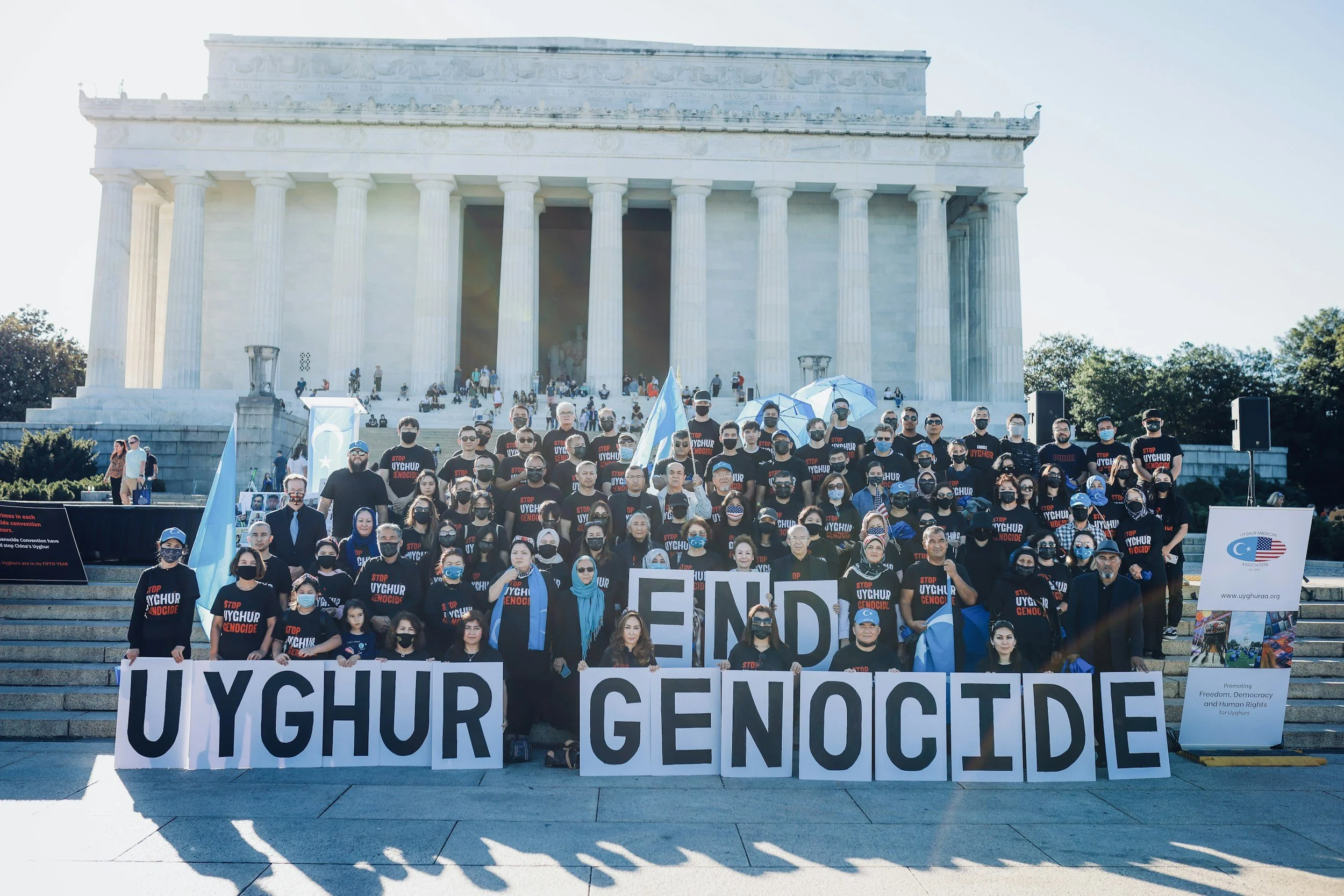Debates over campus discrimination increasingly turn on questions of who bears responsibility for enforcing federal civil-rights norms and how those obligations should be integrated into university governance. Title VI, which prohibits discrimination on the basis of race, color, or national origin, sits at the center of this problem. As federal expectations expand and institutional compliance structures become more complex, universities must navigate a landscape in which regulatory pressure, expressive freedom, and internal administrative authority are in continual tension. The result is a system where the contours of enforcement are shaped less by systematized doctrine than by the bureaucratic arrangements that interpret it. Against this backdrop, New York’s recently enacted Senate Bill S4559B, requiring institutions to appoint Title VI coordinators, invites evolution through the Barnard-Columbia settlement, which provides an early example of how such officers operationalize federal mandates and structure campus-level enforcement.
Read MoreOn August 1, 2024, a Louisiana law went into effect allowing judges to order defendants found guilty of certain sex crimes against minors to undergo castration. Surgical castration involves a physician removing a person’s testicles, resulting in a permanent reduction in the production of testosterone. Since testosterone is linked to libido, the goal of the Louisiana law is to limit the drive that compels sexual predators to abuse minors. However, the discretion granted to judges making such sentences in sex-related convictions raises issues regarding consent, permanence, and the effectiveness of the procedure. This has led some legal scholars to view punitive castration, as permitted by Louisiana, as unconstitutional. However, when examining the constitutionality of the law as well as the state’s substantial interest in reducing the recurrence of sexual offenses, there is some degree of legal permissibility for taking this aggressive course of punitive action.
Read MoreIn the 20th century, the travesty and weight of the two World Wars devastated the world and humanity. Together, the states saw to it that an international framework was built and implemented so that atrocities like the Holocaust and the Rwandan genocides would not go unnoticed and that perpetrators of such violence would be held accountable. This is why, in 1946, the United Nations declared genocide a crime under international law. They adopted the Convention on the Prevention and Punishment of the Crime of Genocide (CPPCG) in 1948, outlining its framework of articles. The articles most relevant here are Article 1, stating that the states that are parties to the Convention recognize genocide as a crime and commit to prevent and punish such acts. The other relevant article is Article 2, further outlining actions that constitute genocidal actions.
Read MoreThe legal framework around the participation of transgender individuals within their associated-gender sports has grown contested, condemned, and increasingly complex. The Civil Rights Act of 1964 extended the freedom to express one’s gender, sexual, and personal identities in public and private spaces, free from discrimination or limitation. While the controversy of transgender participation includes concerns of fairness and physical justice for female-born athletes, the legal restrictions present concerns for equal rights under the law. In 2024, President Biden grew aware of threats to transgender and sexual identity rights, subsequently instating greater protections for transgender athletes. Immediately, Trump vowed to roll them back, and he has followed through. On February 5th, 2025, President Trump signed an executive order titled “Keeping Men Out of Women’s Sports” (Executive Order 14201). The legality of this executive order breaches into numerous fields of civil rights regarding equal protections along gendered lines. It also extends the legal controversy between civil liberties and identity-based politics, and how these two have grown increasingly intersectional and interconnected. This chapter aims to unravel the legal obstacles surrounding the evocation of this order, its current and international social impact, and the relevance of upholding the law moving forward.
Read MoreOne of the most prominent policy changes of Donald Trump’s campaign for his second presidency centered around the mass deportation of immigrants illegally in the United States. After returning to office, he quickly went to work amending preexisting acts in order to accomplish his goal, and already deported almost 40,000 immigrants in his first month. The new administration’s aggressive policy reforms have sparked scrutiny throughout the country and are now under pressure from multiple legal challenges. So, the questions remain: why are deportations legal, and how do the Trump administration’s new efforts differ from the past? This article will examine the legal framework surrounding these new policies, the legal challenges they face, and the potential implications for the future of immigration law in the United States.
Read MoreIn recent years, the interpretation of Title IX has shifted from being assessed through the statute's text to being shaped by the priorities and motivations of the current administration. Despite differing approaches, one constant remains: Title IX, as it stands currently, is at a major crossroads, with legal scholars deeply divided on how to address its challenges and shape its future. One such challenge is data collection. Organizations like the Rape, Abuse & Incest National Network (RAINN) and the Association of American Universities (AAU) have conducted surveys regarding the prevalence and perception of sexual misconduct on college campuses; yet, until recently, laws mandating campus climate surveys were not instituted on a federal level, with inconsistencies across states. The 2022 omnibus spending bill now requires all U.S. campuses to complete a survey by 2024. However, the Higher Education Sexual Misconduct and Awareness Survey (HESMA), born from this effort, has faced criticism for its small, unrepresentative sample. Accurate data is essential, as S. Daniel Carter, the president of Safety Advisors for Educational (SAFE) Campuses, states, “Without hard data, you can’t know how to effectively target and respond to problems.”
Read MoreGlobal recognition of the right to housing has been a staple of human rights since 1948. First solidified in Article 25 of the 1948 Universal Declaration of Human Rights, covenants like the 1966 International Covenant on Economic, Social and Cultural Rights and the Covenant on Civil and Political Rights (CCPR) have further instilled a right to housing. Though many have signed the Covenants and ratified some of its treatises, these agreements are not legally binding; thus, they serve as a foundation upon which states can recognize and allow to inspire their laws in accordance with the declaration. Despite a global recognition of the human right to housing, with 172 countries having ratified the right, there are growing tensions and rulings occurring in states around the world that have begun to undermine or ignore the right to housing at the peril of individuals’ rights and livelihoods.
Read MoreThe Clean Air Act of 1970 gives the Environmental Protection Agency the power to set national air pollution guidelines known as National Ambient Air Quality Standards (NAAQS). In 2015, the EPA made the NAAQS for ozone stricter. However, due to the possibility of cross-state air pollution where upwind states could prevent downwind states from achieving the new NAAQS, the EPA proposed a transboundary Good Neighbor Plan. The provision calls for upwind states to reduce ozone-forming nitrogen oxide (NOx) emissions from industrial facilities to “result in cleaner air and better health for millions of people living in downwind communities.” The twenty-three upwind states were then required to submit individual State Implementation Plans (SIPs) to reduce their respective emissions. However, the EPA rejected twenty-one of these plans and subsequently decided to implement (or, as the states would see it, impose) its own Federal Implementation Plan to meet the NAAQS. The FIP triggered a legal challenge from three states and several trade associations, requesting a court to temporarily stay the EPA rule, arguing that the emission controls were “arbitrary or capricious.” Twelve of the original twenty-three upwind states have already been granted stays from lower courts.
Read MorePrivacy law stands at the intersection of individual rights, government regulation, and societal norms, shaping the landscape of healthcare, reproductive rights, and personal freedoms. In today's world, where advancements in technology and shifts in political landscapes continuously redefine the boundaries of privacy, grasping the significance and dynamic applications of privacy law is growing increasingly crucial. This roundtable explores three distinct realms where privacy law exerts its influence: gender-affirming healthcare, abortion rights, and government surveillance.
Read MoreThe role of international organizations in regulating and enforcing global conventions and agreements is both potent and tenuous. On the one hand, institutions such as the United Nations and the European Union are backed by the power of legal jurisdiction over all states that subscribe to their authority. On the other hand, because this authority stems from the states themselves, the institutional capacity to meaningfully intervene and adjudicate in state matters is, to a certain extent, perpetually unsettled. This constant tension between legal mandate and practical capacity defines many international organizations. One of the many sensitive issues these organizations and conventions must tackle is the question of limits to the right to privacy, which has become a flashpoint in recent years due to the COVID-19 pandemic given the unprecedented level of data sharing and public health monitoring that states have undertaken to address the public health crisis.
Read MoreThe adjudicative capacity of human judges, and hence the outcome of a process of legal dispute resolution, can be impacted by a great number of circumstances – the judge’s reliance on intuition, their personal beliefs, and even how long ago they last ate. [1] The proposition of (metaphorically) seating Artificial Intelligence (AI) on the bench is thus, prima facie, attractive, because, surely, computers can be more objective than human beings. A commonly held view by proponents of using AI in an adjudicatory role is that algorithms are more objective because they are thought to overlook ancillary characteristics like gender and race, which are generally not relevant to the legal question at hand, and towards which humans hold implicit biases. [2] Moreover, using AI in an adjudicatory capacity could potentially help in lowering the costs of administering justice, and streamline dispute resolution; indeed, this was the motivation behind Estonia’s use of AI to resolve certain small-claims cases. [3] AI then seems like a panacea to the twin ills of inefficiency and non-objectivity in judicial decision making. However, there are compelling pragmatic and principled reasons, both pragmatic and principled, against involving AI in the judicial decision making process.
Read MoreConcerning the responsibilities of medical professionals and the rights of their patients, medical law primarily covers issues of negligence, ethics, and confidentiality. [1] With its far reaching scope, medical law has long been addressed, beginning with the Hippocratic Oath in the Greek classical period. [2] This oath addresses several concerns of medicine, particularly focusing on a doctor’s duty to care for their patient to the best of their ability, uphold doctor-patient confidentiality, and instruct future generations of doctors. [3] Though the Hippocratic Oath remains valuable in the medical profession, medical law in the United States has been particularly shaped by landmark cases on negligence, medical malpractice, and confidentiality. Such cases set important precedent both for medical jurisprudence as well as for the medical profession as a whole.
Read MoreIn 1735, Peter Zenger was put on trial for publishing newspapers critical of the New York colonial governor. His lawyers defended him on the grounds that truth and veracity superseded libel, stating “the exposing of public wickedness…is a duty which every man owes to truth and his country.” [1] Zenger was acquitted, and thereby set a precedent for freedom of speech and liberty of the press in the annals of American history. However, at the turn of the century, anxieties over a war with France complicated the issue, and the precedent was ignored by the now-infamous Alien and Sedition Acts. Passed by the Federalist in 1798, the acts were a series of four laws designed to fracture their political opposition by criminalizing any perceived criticism or subversion of the government. The logic used to justify these civil oppressions was the exigent circumstances of a potential war—that age-old societal plague that has captivated our fascination and horror for millenia, the harbinger of revolution, empire, and atrocity.
Read MoreAs the mental health crisis in the United States grows, the U.S. Census Bureau reveals that clinically significant symptoms of depression and anxiety have more than tripled since the coronavirus pandemic began. [1] The question of what legal protections exist for those with mental illness within the realm of healthcare is more prevalent than ever. There are certain protections in place through the ADA for individuals suffering from mental health illnesses such as blocking employers from discriminating against individuals with mental illness conditions, right to privacy of medical information, and providing accomodations when needed. [2] Since the inception of the ADA, there have been great strides in the implementation of the ADA’s provisions within covered entities. However, many barriers still existed despite the implementation of the ADA. Stemming from inadequate provisions in the policy itself, the ADA failed to mandate parity between mental and physical disability benefits.
Read MoreThe legal history of the recognition of labor rights consists of judicial balancing between employers’ business interests and laborers’ interests in fair labor practices. In post-revolutionary labor combination cases, union members were fined because English common laws were still in use––under which making labor combinations was an indictable offense. [1] In the case Commonwealth v. Hunt (1842), seven journeymen in Massachusetts were charged for forming a union. [2] The Massachusetts Supreme Court established that labor combinations were not inherently illegal unless an organizations’ goals or practices were themselves fraudulent, false, forceful, or otherwise “criminal or unlawful.” [3] Later, The Supreme Court In re Debs (1895) upheld the federal government’s ability to use injunctions against labor strikes. [4] In 1894, employees of a railroad car manufacturer went on strike and disrupted business in the Chicago area. [5] Strike leaders refused to halt their activities after an injunction was issued in federal court. On appeal, the Supreme Court sided with the employers to protect the public’s interest in interstate commerce. [6]
Read MoreIntegral to a strong republic is the existence and protection of its secrets. Failing to safeguard sensitive information could endanger the safety and security of a nation, as well as that of its citizens. Throughout history, nations across the globe have kept secrets — whether they involve the preservation of military strategies, intelligence, or covert communications, making sure that a country’s secrets stay secret is critical to the establishment and conservation of their power.
Read MoreIn order to understand the legal means that allow us to keep our governments accountable for environmental damage, it is crucial to have a holistic perspective on the evolutions and historical foundations of environmental law.
Environmental litigation is based on a recently established legal framework. Indeed, most major environmental statutes were passed between the late 1960s and early 1980s, with the most significant pieces of legislation passed during the Nixon administration. [1] On January 1, 1970, Nixon signed the National Environmental Policy Act, an important first step in the emergence of national environmental goals and policies. Later that year, Nixon created the Environmental Protection Agency (EPA), which has since become a key institution in environmental law. Two of the most important laws governing the EPA were passed by Congress over the next two years: The Clean Air Act of 1970, which directs the EPA to set standards for what kind of pollutants may be released into the air, and the Clean Water Act of 1972, which instructs the EPA to set standards for what pollutants may be released into lakes, streams, and rivers. Although this legal framework is fairly recent, it has been quite static: the US has gone almost 30 years without major new environmental legislation. This inactivity, attributable to the growing partisanship of the environmental issues, means that while the climate crisis is rapidly accelerating—the last five years in human history were the five hottest on record—we are currently handling environmental crises with decades-old legislation.
Read MoreThe perception of humanitarian intervention has recently shifted from a mere subset of international law governing the use of force to a legitimate, legal reason for war. Using humanitarian intervention as a justification for foreign interference has become increasingly commonplace in the international arena. However, despite its widespread application, the use of this justification remains highly controversial; critics point out that the humanitarian label runs the risk of masking the hidden geo-political motivations of nations.
Read MoreThe beginning of the Biden Administration was characterized by a distinct shift away from the immigration policies of the Trump Administration. Namely, President Biden’s recent temporary guidelines for Immigration and Customs Enforcement (ICE) sought to redefine the grounds for deportation. These provisions centered around deporting individuals who recently crossed the border, pose a threat to national security, or have committed “aggravated felonies.”
Read MoreWe are the only country with a written constitution that does not prohibit discrimination based on sex,” Congresswoman Jackie Speier (D-CA-14) noted before the House of Representatives on Wednesday, March 17. Speier spoke moments before the body voted on H.J. Res. 17, an effort intended to remove the ratification deadline on the Equal Rights Amendment (ERA). The three-sentence resolution will reach its 98th birthday this year. After Virginia ratified the amendment in 2020, it finally has the required thirty-eight states to theoretically pass.
Read More



















